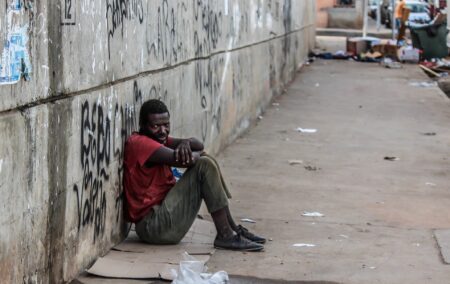South Africans want jobs. The government knows, and this can be seen through statements such as the Medium-Term Development Plan for the seventh administration. But the fact of the matter is that nothing will change if the government does not replace pro-poor policies like localisation and EWC with pro-growth policies.
The government may have recognised the problem, but unfortunately it is likely that nothing will be done, even though we know what the problem is. As has become the norm, there is much planning but little action.
Consider this extract from the Department of Trade, Industry & Competition’s (DTIC) Annual Performance Plan for the next year. This is what the Department would like:
- R350 billion in investment pledges secured across the state;
- R60 billion in additional local output committed or achieved;
- R900 billion in manufacturing exports;
- R400 billion in manufacturing exports to other African countries;
- R9 billion in exports of Global Business Services (GBS);
- R200 billion in Black Industrialist Output Achieved;
- 1 million jobs supported or covered by the DTIC group and/ or master plans;
- 100 000 jobs to be created (50 000 social economy fund part-time or temporary job opportunities and 50 000 full-time jobs;
- 160 000 jobs in Black Industrialists firms retained; and
- 20 000 additional workers with shares in their companies
These wishful billions are not going to fall out of the sky. They require investment. Investment requires an environment conducive to creating opportunities.
This is not going to happen. Here are two words to explain why: “economic planning”.
The DTIC maintains that its masterplans, ranging from the Chicken Masterplan, the Cannabis Masterplan, the Agricultural Masterplan, the Automotive Masterplan, and more will help spur investment in infrastructure and these labour-intensive sectors.
But frankly, anyone who writes the words “economic” and “planning” together needs counselling. And an Economics 101 lesson.
Transformative spending indeed
The DTIC’s plan shows that it will appropriate R2.047 billion for spending on “transformation” for this financial year. It decreases over the next three years by 16.6%. Something to celebrate? The Competition Commission is the largest agency that will benefit from this spending, and it has been wasting taxpayers’ money on ideological market inquiries and corresponding reports that never see the light of day.
The money is better spent on investing in infrastructure, and promoting an environment conducive for successful businesses creating jobs that can truly transform the lives of millions of South Africans.
Free trade: the transformation SA needs.
The Fraser Institute’s Economic Freedom of the World Index shows that countries that have more economic freedom also have lower poverty rates. Economic freedom is defined as “individuals [having] the right to choose…The cornerstones are personal choice, voluntary exchange, open markets and clearly defined and enforced property rights.”It is the transformation that South Africa truly needs to make it #WhatSACanBe.
The masterplans, tariffs, and subsidies have resulted in an uncompetitive business environment, which has stalled investment, both foreign and domestic. South Africa cannot afford to be gatekeeping the sectoral “champions”. A revitalised trade sector would force these “champions” to compete on their own merits. It would allow ordinary South Africans like you and me to benefit from innovation and ultimately, cheaper prices.
This is not a short-term plan. It is a long-term goal. The United States, Europe, Australia, and even China (having undertaken market-friendly reforms in the ‘80s) know this. It is time Africa gets with the programme.
The “African solution to the African problem” is not more state control over the economy. The solution is adopting policies that have lifted billions out of poverty. It starts with secure property rights, pro-growth policies, and free trade agreements like the African Continental Free Trade Agreement (AfCFTA).
Poverty, inequality, and unemployment are global problems. Africa’s problem is electing (and installing) economically illiterate socialists, for the sake of being “anti-imperialist” and “for the people”.
Give the African people the freedom to trade with each other. Give us the freedom to own our property and give us the freedom to choose.
Let’s get the economy working
The latest paper in the #WhatSACanBe series provides the Government of National Unity with the power to revitalise South Africa’s economy by eliminating barriers to investment and enabling job creators.
The ANC’s Deputy Chairperson of its Sub-Committee on Economic Transformation, Zuko Godlimpi, recently remarked that “the loudest message coming out of the elections is that we’ve got to get South Africa’s economy working…”. This message is nothing new: if you recall, the ANC reaped the benefits of a high-growth, low-unemployment, and low-debt economy in the 2004 election, winning almost 70% of the vote.
A multi-party government now has the best chance in 20 years to tap into the sentiment and yearning for #WhatSACanBe.
Read the third paper in the series here.
If you like what you have just read, support the Daily Friend.

